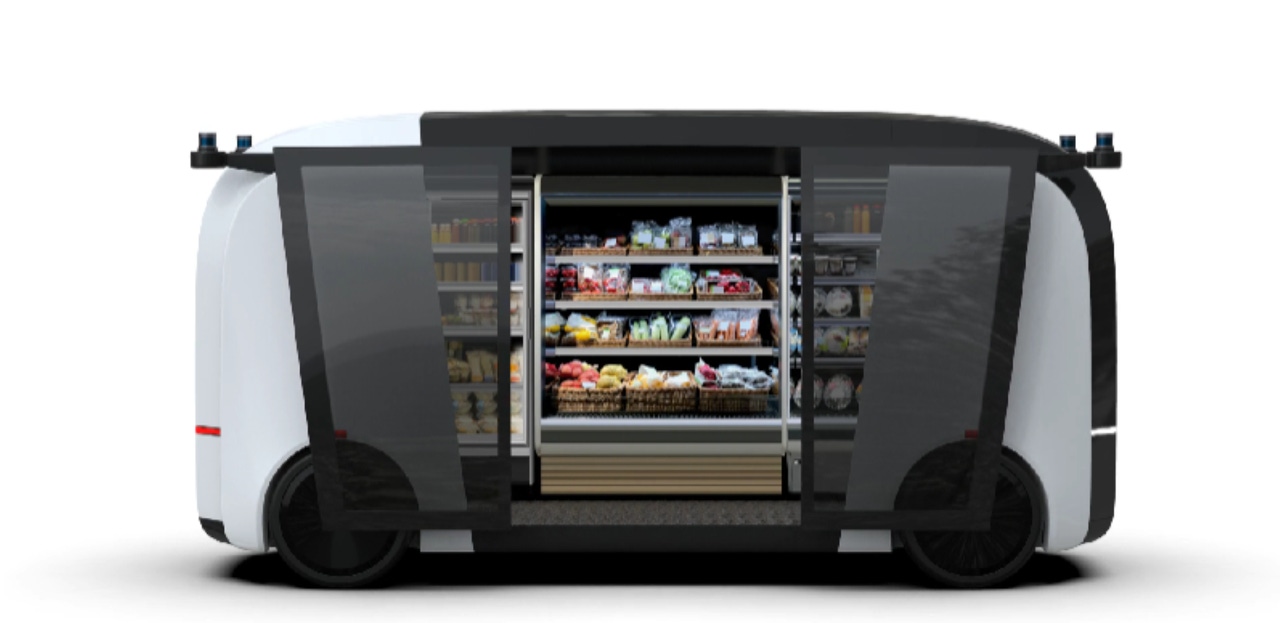In the future, your grocery store could get a speeding ticketIn the future, your grocery store could get a speeding ticket
Grocery Tech Basket: Robomart is essentially a driverless grocery store on four wheels.


Grocery Tech Basket is the new WGB column from Tech Editor Timothy Inklebarger, exploring the week's biggest developments in grocery technology.
“When will we have grocery store jetpacks?” joked a friend of mine online last week after posting the first installment of Grocery Tech Basket.
My attempt at a witty response: “That’s next week’s column!”
We don’t have jetpacks yet, at least not for grocery stores, but I was surprised to learn about a new technology this week that comes kind of close—I’m talking about Robomart.
If the name immediately conjured images of the 1987 sci-fi action movie “Robocop,” then you’re most certainly a Gen X-er like me. Robomart doesn’t traverse the streets of a futuristic, dystopian Detroit arresting criminals and declaring, “Dead or alive, you’re coming with me!” But its capabilities are just like something out of a sci-fi movie.
Founded in 2018 by CEO Ali Ahmed, Tigran Shahverdyan and Emad Suhail Rahim, Robomart is essentially an autonomous grocery store on four wheels.
Users hail the store electronically and wait for it to cruise over. No sitting on your cell phone for an hour scrolling through pages of products. You'll have plenty of time for indecisiveness once Robomart pulls into your driveway, the door pops open and you get to browsing in real life.
You might think this is the kind of technology we’ll see five or 10 years from now, but the smaller version of Robomart, known as the Oasis model, has already been deployed in the West Hollywood neighborhood of Los Angles, Ahmed told me in an interview.
The Oasis mobile stores are capable of carrying about 30 to 50 SKUs and cater primarily to cafes, restaurants and ice cream shops, according to Ahmed.
That model currently does have a driver, but Ahmed said the windows to the van are tinted, and the vehicles are expected to go fully automated soon. “They never see or interact with the driver; everything happens automatically,” Ahmed said.
The Haven model, which is expected to be deployed sometime in 2025, can carry 10 times as many SKUs and products, according to Ahmed, and will use artificial intelligence to navigate the roadway.
Upon learning about the company’s latest round of financing—the Los Angeles-based tech company just received $2 million, bringing its total to $3.4 million—I thought about the numerous other tech-focused delivery companies, like Coco and Starship, which are remote-controlled vehicles that travel along sidewalks to make deliveries.
But Robomart is different, according to Ahmed.
"We really don't equate ourselves with delivery at all. Why? Because it is completely rethinking what delivery means,” he said. “With Robomart, there is no order process. There's no need for a user to actually place an order. And because of that, there's no order pickup. There's no pick-and-pack, and there's no driving to a store. "
He said hailing the store to the customer’s home “is always going to be faster, cheaper and more profitable than delivery.”
Delivery services might have an edge over a fully-automated system, though, due to the regulatory hurdles Robomart faces as it begins to roll out. However, Ahmed said the tide is shifting when it comes to acceptance of self-driving vehicles.
The city of San Francisco just approved self-driving taxis, for example, and Ahmed believes it’s just a matter of time before states and cities across the nation follow suit. Texas, Arizona and California are more receptive to the idea of driverless vehicles, and those three states alone make up roughly a quarter of the U.S. population, he said.
But what about all the pollution caused by Robomarts? Not a problem, according to Ahmed—the models they are developing are electric vehicles, so ordering the store to come to your home is likely better for the planet.
What do you think about Robomart? Could it give traditional grocers and delivery services a run for their money? In my opinion, and to borrow a line from the aforementioned cop movie, “I’d buy that for a dollar!”
About the Author
You May Also Like






